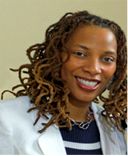This Mother’s Day I got treated to rest and dinner. My husband took care of my one-year-old all through church service and fulfilled most of our children’s demands throughout the weekend; I ate at my favorite restaurant (The Blue Nile, Ethiopian); and I finally watched the TD Jakes’ movie Not Easily Broken with Morris Chestnut and Taraji P. Henson.
For those of you who haven’t seen the movie, it’s about what happens to a married couple that doesn’t keep God at the center of the marriage. In this movie, selfish desires take precedence and allow bitterness and blame shifting to become basis of the couple’s interactions. Ultimately, pride is what keeps each of them from continually pursuing the other to make amends. But a conversation with her mother led the wife to a revelation of her complicity in destroying her marriage.
In defending why she encouraged her daughter to put her husband out of the house, her mother said: “Black women have to be strong and you know that.” “And in all your lessons about how I need to be strong and proud and independent, Mama, you left out some very important things. How to love, Mama. How to really care about somebody. How to forgive.” Oh, this struck a chord with me. My mama, too, like many of our mothers, gave us the reality lesson of the double struggle that comes with being black and a woman: People automatically discount your strengths so you have to work twice as hard to be considered half as good. And for me and others I know, this made us work more than twice as hard because we wanted to be considered more than half as good. This excellence, for me, resulted in pride. Not the kind that prompts you to have good self grooming and appreciate how God made you (this is good pride), but the kind that says, “I’m all that. I’d rather just do it myself to make sure it gets done right.” I became self-reliant and in my recovery, I have had to learn how to have God esteem, not self-esteem, and let people help me.
Pride has been my source of strength, my vice, for many years. We know that pride comes in many forms, and I have dealt with a good variety of them: intellectual pride, family pride, sorority pride, material pride, just to name a few (Yes, there are more. I will be delivered, in Jesus’ name). As I prepare to reveal my proud self in various areas of my life, tell me where you struggle with pride. How has pride been a hindrance for you? Talk to me.
Copyright 2009 by Rhonda J. Smith

